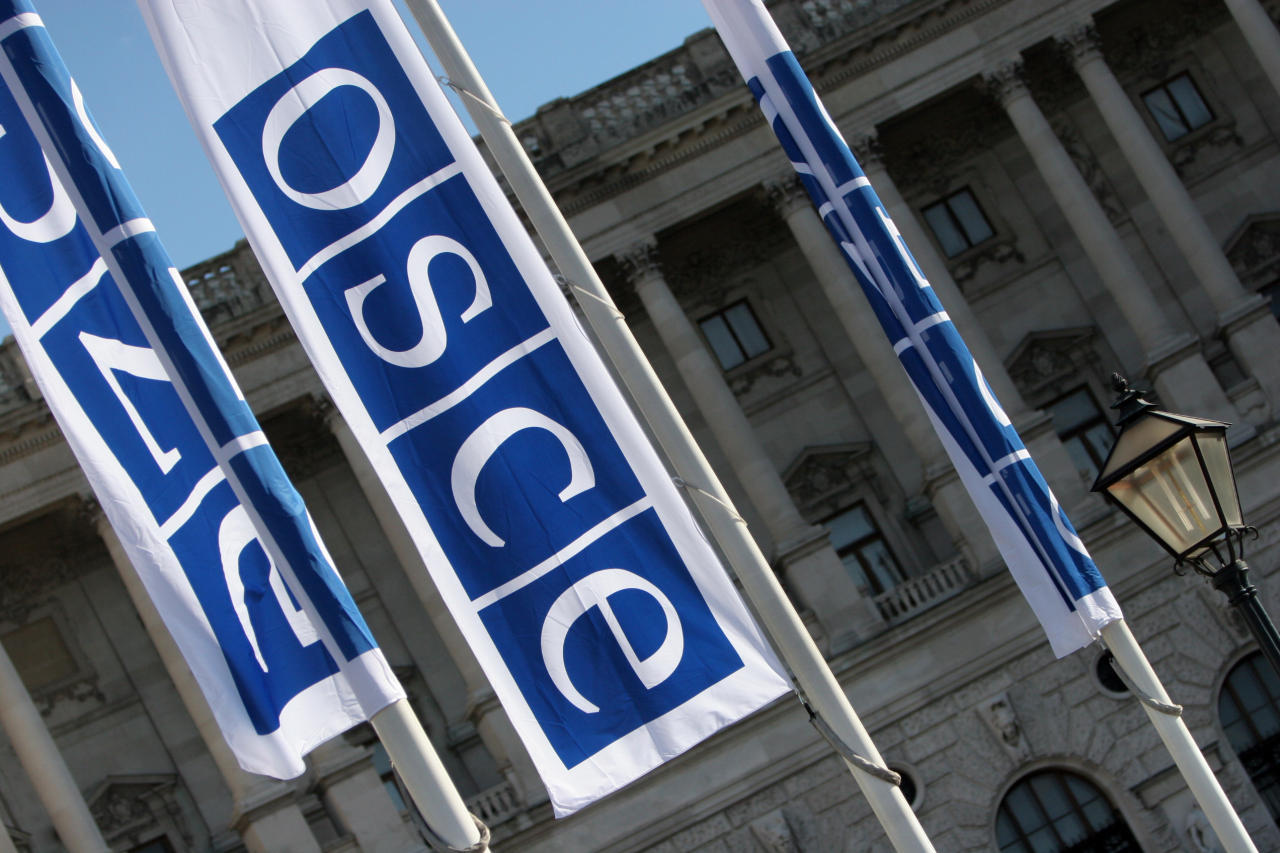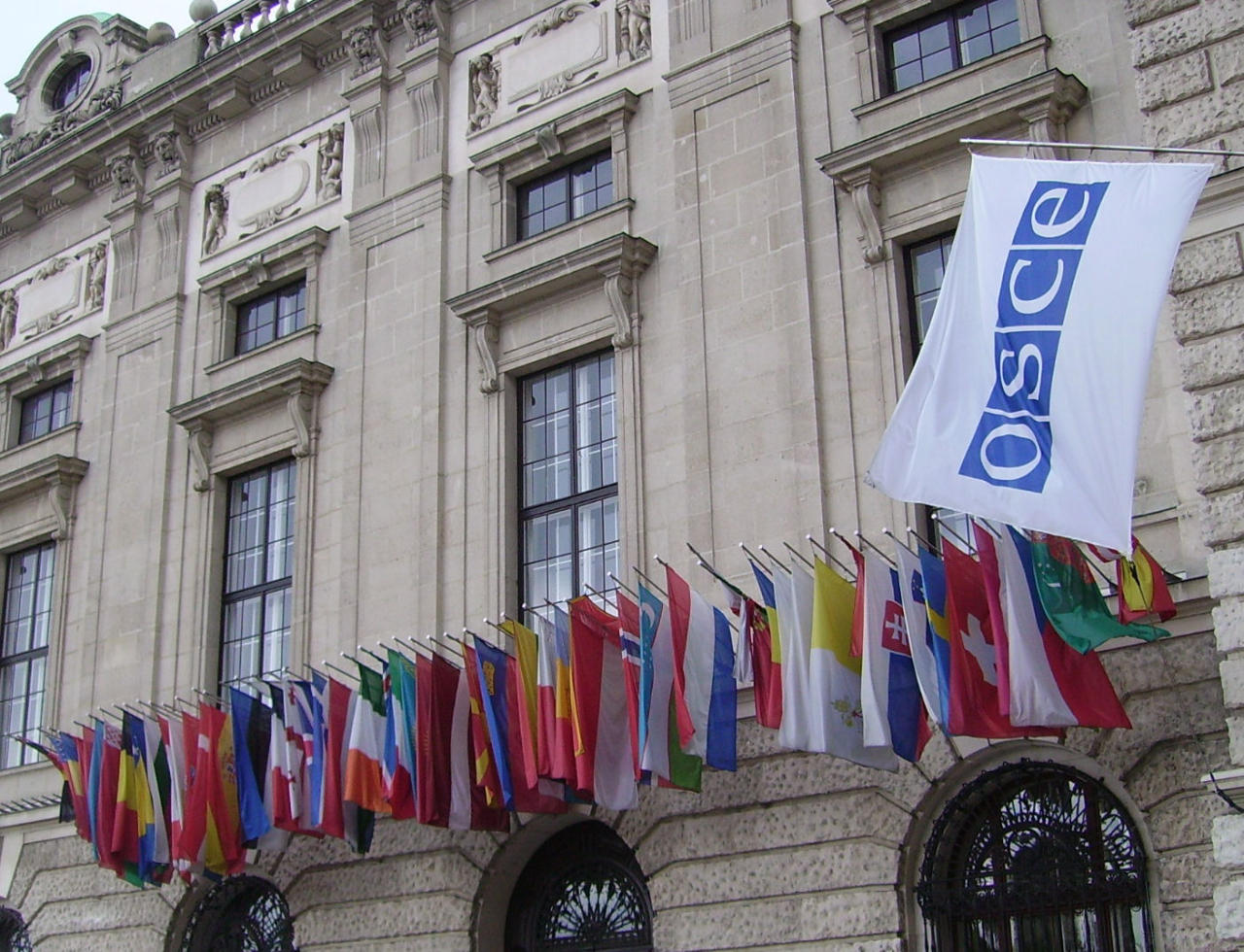OSCE Minsk Group facing crisis of confidence

By Orkhan Amashov
The Second Karabakh War sent a near-death blow to the beleaguered OSCE Minsk Group. Neither the trilateral ceasefire agreement that ended the hostilities nor subsequent documents signed within the same format, mentioned the organisation in question in any way, whether in a perfunctory or pro forma manner. But what would have been a coup de grace has yet not been delivered. Its ultimate fate remains unsealed.
The OSCE Minsk Group is, technically, alive. It reminded us of its existence throughout the war by making "peace-seeking" statements, which, as the old saying goes, were not worth the paper on which they were written.
Its co-chairs, despite not being formally invited by Baku, were received by Azerbaijani President Ilham Aliyev after the end of the hostilities. The OSCE Minsk Group found it important to declare to the larger world, through its 13 April statement, that it retained the OSCE mandate to mediate and called for a "comprehensive and sustainable settlement on the basis of the elements and principles well-known to the sides". The declaration, perhaps inadvertently, demonstrated the organisation's inability to offer anything apart from vaguely worded proposals based on "normative ambiguity".
There have been some meetings arranged under its auspices since the end of last year's war. For instance, in late September, Azerbaijani Foreign Minister Jeyhun Bayramov met the co-chairs and his Armenian counterpart Ararat Mirzoyan on the sidelines of the 76th session of the UN General Assembly. Another OSCE-arranged meeting of foreign ministers, scheduled for December 4, did not take place, due to Baku's last-minute change of mind caused by the illegal visit of Armenian MPs to Karabakh.
With Russia as Yerevan's closest ally and the U.S. as the home of the largest Armenian diaspora in the world, the evenhandedness of the co-chair countries has been doubtful from the very outset. The inclusion of France did not help either. The latter was instrumental in replacing the term "the armed forces of Armenia" with "local Armenian forces" in the four UN Security Council resolutions passed against the occupation in 1993, which meant that the conflict would be considered not under the Chapter VII of the UN Charter as an act of aggression, but under the Chapter VI as a dispute that should be settled peacefully.
The perfidy lying at the heart of the French view of the conflict from its inception manifested itself throughout the years of fruitless negotiations and perhaps culminated in the fatal words of President Macron to the effect that, in the dramatic context that emerged after last year's war, France sided with Armenia.
The impact of the consequences of the Second Karabakh War on the OSCE Minsk Group is massive. The November 10 ceasefire statement was the result of a military solution, whereas the process under the OSCE's mandate was predicated on peace negotiations. Azerbaijan, by using its right to defend its sovereign territory under Article 51 of the UN Charter, compelled Armenia, through the application of military force, to withdraw from the occupied territories. This was also perfectly in line with the logic of the four UN Security Council resolutions, in which the Armenian military presence was referred to as "occupation". Therefore, by behaving strictly in conformity with international law, Azerbaijan achieved a military solution to the protracted conflict, which was completely beyond the comprehension of the OSCE Minsk Group's logic.
It is true that Azerbaijan's victory in the 44-day war led to the crisis of relevance that the OSCE Minsk Group is currently facing. But Baku's recourse to military means was the result of the meaninglessness of the peace process, which became particularly obvious when the new Armenian government, led by Nikol Pashinyan, explicitly repudiated the Madrid Principles, insisting on the inclusion of the unrecognised illegal Armenian regime as a party to the negotiations, without the participation of Azerbaijani citizens. This, coupled with Pashinyan's cheap populism, which manifested itself in ill-thought public utterances, effectively meant a renunciation of the OSCE mediation by Yerevan.
Russia, which has been an inescapable actor in the Azerbaijani-Armenian negotiations, is very comfortable with its central mediator role in the trilateral format, and thus not interested in the revival of the OSCE Minsk Group, which the US and France view as an instrument to re-establish themselves within the process. While the Kremlin upgraded its role in relation to the conflict from 2010 onwards, Washington and Paris did the reverse, they retrenched. Even if the two Western powers manage to recoup some of their influence, which may be possible to a certain extent for the U.S, and very unlikely in the case of France, it is not probable that the OSCE Minsk Group will evolve into an effective tool in their hands.
The OSCE Minsk Group was not a shining example of success throughout its almost 30-year existence, yet it behoves a fair-minded observer to acknowledge that, between 1997-2007, the period which perhaps was the heyday of the organisation, the co-chairs managed to put forward a couple of proposals, which were not entirely worthless.
But, if to consider a larger picture, the Minsk Group has outlived its unfulfilled purpose and thus is devoid of any meaningful reason to exist. It is an embodiment of creative inertia and a textbook example of how to spend a lot of resources on achieving nothing. Here is a candid quote from Richard Hoagland, who was an American co-chair of the Minsk Group in the past: “We stayed in five-star hotels where we were usually assigned suites on the executive floor that gave us access to a private dining room and full bar at no additional expense. We always sought out the best restaurants in the cities where we found ourselves. We lived well while we showed the OSCE flag and reminded Baku and Yerevan that the Minsk Group exists. But to be blunt, very, very little ever got accomplished.”
At present, the OSCE Minsk Group is experiencing what one may call, without any degree of exaggeration, an existential crisis, as it has been left with miniscule raison d'etre. It is now bankrupt and dead. Its terms of reference are archaic. To date, there have been very little signs suggesting that the co-chairs have come to terms with the new post-war reality. Their statements have been indicative of the urge to remain relevant.
It remains to be seen if the OSCE Minsk Group will manage to conclusively readjust itself through reform and the renewal of purpose, and consequently play any substantial part in post-conflict resolution. Yet what happens to be more or less certain is that its future role is not going to be anywhere near to what it had been prior to last year's war.
--
Here we are to serve you with news right now. It does not cost much, but worth your attention.
Choose to support open, independent, quality journalism and subscribe on a monthly basis.
By subscribing to our online newspaper, you can have full digital access to all news, analysis, and much more.
You can also follow AzerNEWS on Twitter @AzerNewsAz or Facebook @AzerNewsNewspaper
Thank you!

